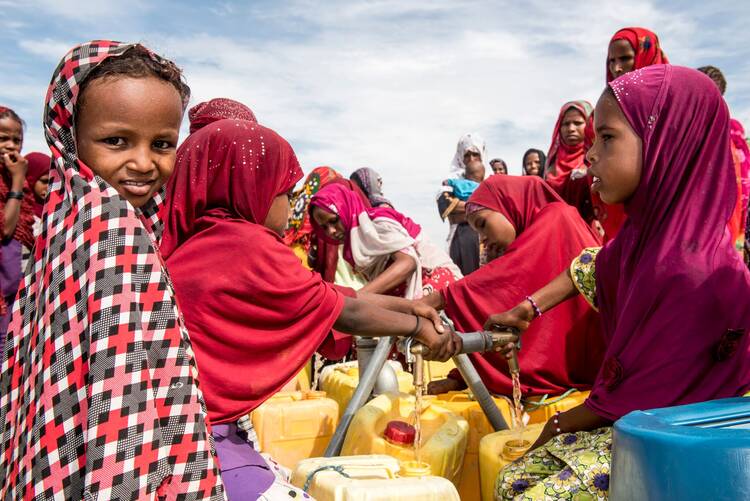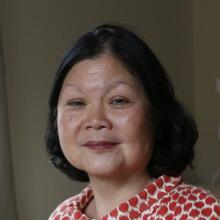There is a common misconception that development work has hardly made a dent in global poverty. It is not hard to understand why: Stories of suffering and exploitation in low-income countries still abound. But often missing from the narrative is the overall progress that the international community has made. In the last three decades, rates of extreme poverty and childhood mortality have fallen while access to water and schooling for the most marginalized populations has increased significantly.
These achievements are not complete, perfect or irreversible. Today, we face the largest crisis of refugees and displaced people since World War II, seemingly intractable conflicts in the Middle East and Africa, environmental degradation around the world and the ever-present risk of pandemics. Future progress requires humanitarian agencies like Catholic Relief Services, where I finished my tenure as president last year, to reinvent themselves by boldly pursuing what I call the four “S’s”: scale, systemic approaches, sustainability and stewardship.
First, because the people in need number in the billions, our programs must stretch each dollar to serve as many as possible. To do this, our projects must be rigorously evaluated and, when appropriate, standardized and replicated across diverse contexts. For example, by scaling up successful programs, C.R.S. has been working to revitalize the nearly extinct cocoa industry in El Salvador; strengthen households and local governments in 200 communities in western Guatemala; and create livelihood options for 17 percent of the population in Gaza. Community-specific interventions that cannot be replicated can be effective for small subsets of people but can also be an obstacle to reaching large numbers of those in need.
Second, while many people picture humanitarian work as the distribution of food and medicine, such immediate aid rarely gets at the systemic causes of problems. Hunger, for example, results from myriad factors such as degraded soils, disadvantaged bargaining positions for actors such as small farmers, the unequal treatment of women and the inability to access public transportation, roads or other government services. That is why C.R.S. uses the integral human development framework for systemic interventions. It means working with individuals, families and communities to attend not only to material needs but also to long-term economic security, family stability, health services, community building and conflict resolution—and giving stakeholders the skills they need to advocate for their rights.
The four “S’s” call us to be worthy of the privilege of serving the brothers and sisters God entrusts to our care.
Next, we must ensure that whatever gains are made will be sustained after a development project’s funding expires. Success in this regard shifts the emphasis from what an aid agency does to what the affected community can and will do. This means investing in the capacity of local groups to formulate their vision, manage programs, collaborate across different faith, tribal or ethnic groups, and engaging local governments to set policies and provide supporting infrastructures. Sustainability also requires the involvement of business. One promising way to partner with the private sector is impact investing, the use of private capital to meet social needs through models that benefit both the poor and investors.
Finally, while the overhead costs of nonprofits receive a great deal of scrutiny, it is not the sole metric of good stewardship. Low costs do not necessarily signal that a nonprofit or government agency is making the best use of its resources; this can be discerned only through evidence-based assessments of programs. Low overhead costs fail to capture the long-term atrophy that occurs when organizations do not invest sufficiently in training their staff, partners and beneficiaries or in technologies like mobile communication and satellite mapping.
Though tough, the four “S’s” call us to accountability and help us to be worthy of the privilege of serving the brothers and sisters God entrusts to our care. These goals do not exceed our human ingenuity. Let us take all that is not right in the world as an invitation and opportunity to bring our hearts and wills, our courage and sense of adventure, and, above all, our faith that God multiplies our efforts to manifest his divine compassion into a world of suffering and of hope.











Ms Woo calls on us to do better in "serving the brothers and sisters God entrusts to our care." One obvious way to do better is to concentrate our services on our brothers and sisters, excluding nonbelievers. Would Ms Woo support that, or does she prefer that C.R.S. and other Christian relief efforts be general philanthropy?
Carolyn Woo is a person whom I do not know, yet have the greatest respect for. So far as I can see, she has had a very effective term as president and CEO of CRS.